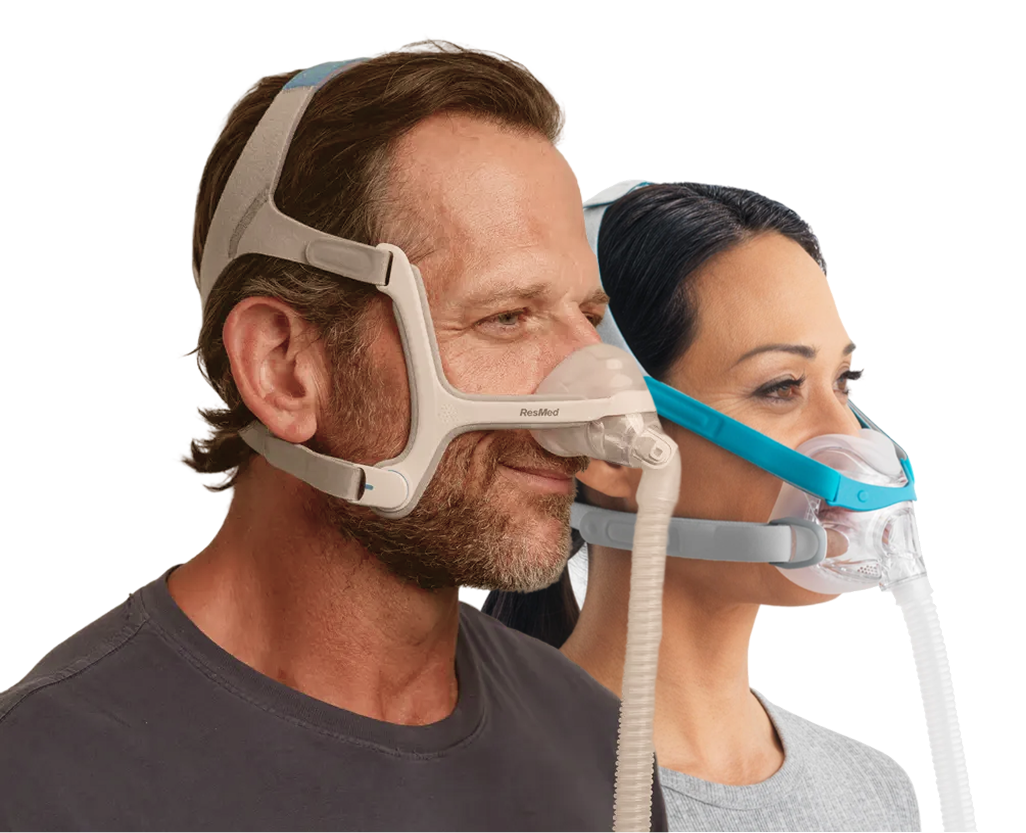Sleep deprivation is increasingly common in today's fast-paced world, especially among individuals suffering from insomnia. More people are working late, using digital gadgets before bedtime, or just dealing with chronic stress, and the effect is the two being compromised: quality and quantity of sleep. This article of CPAP Discount Warehouse will discuss the causes of sleep deprivation, symptoms to recognize, effects on the physical body and mind, and measures for prevention.
What is Sleep Deprivation?
Sleep deprivation is when you don't get enough sleep for a long time. This happens when someone doesn't get enough sleep. It is thought that about one-third of Australians don't get enough sleep. Sleep is very important for your body and mind. It helps your body and mind rest, recover and do important things like remember things, control your emotions, fight off illnesses and stay healthy. Sleep deprivation can lead to poor short-term and long-term health outcomes, as well as making everyday activities more difficult.
How much sleep do i need?
Everyone needs sleep, and most people need about the same amount of sleep, depending on their age. That amount also changes with age. The average amount of sleep needed each day, based on age, is:
+ Newborns (up to 3 months old): 14 to 17 hours.
+ Babies aged between 4 and 12 months should sleep between 12 and 16 hours a day, including during naptime.
+ Children aged between one and five need between 10 and 14 hours of sleep. This includes the time spent having a nap.
+ Children of school age (6 to 12 years old) should get between 9 and 12 hours of sleep.
+ Teenagers (13 to 18 years old): 8 to 10 hours.
+ Adults (18 years and over): 7 to 9 hours.
Sleep deprivation can also take different forms. Some people don't sleep because they stay awake. Some people are still asleep, but they aren't getting enough good sleep. This means they still wake up feeling tired. Sleep deprivation usually isn't a major problem in small, limited amounts. But research shows that not getting enough sleep can cause or add to a variety of health problems.
Acute vs. Chronic Sleep Deprivation
Acute sleep deprivation is when it happens for a brief time span-this could be remaining awake for a proper night or merely having a few hours of sleep for a night or two. However, even if it provides momentary issues such as tiredness or decrease in attention, it is generally reversible.
Chronic lack of sleep is a long-term pattern of insufficient sleep. It can be caused by lifestyle habits, untreated insomnia, shift work, or medical conditions such as obstructive sleep apnea. It may also, in the long run, cause critical health problems.
Causes of Sleep Deprivation
Several key factors contribute to sleep deprivation:
+ Shift work (especially nights).
+ Drinking too much alcohol (or not drinking it in the right way).
+ Taking stimulants like caffeine later in the day.
+ Poor sleep habits are called 'sleep hygiene'.
+ They are under a lot of pressure.
+ This is about sleeping in a place you don't know, like in a hotel when you're travelling.
+ Brain disorders that get worse over time, like Alzheimer's disease and Parkinson's disease.
+ Mental health concerns.
+ Concussions and traumatic brain injuries.
+ Insomnia
+ Restless leg syndrome.
+ Disruptive sleep disorders such as parasomnias sleep paralysis and sleepwalking and more.
+ Medicines like corticosteroids, stimulants and others.
+ Short-term illnesses and infections

Common Sleep Deprivation Symptoms
Recognizing the symptoms of sleep deprivation is the first step in addressing it. These symptoms affect the body, mind, and behavior.
+ Daytime sleepiness.
+ Fatigue.
+ Irritablity.
+ Trouble thinking, focusing and remembering.
+ Headaches.
+ Slowed reaction times.
+ Mood change.
+ Hallucinations.
Among the earliest signs of being sleep-deprived is the sleep deprivation headache. These headaches often feel like dull pressure and can start soon after a night of insufficient sleep. They are the body’s way of warning that rest is lacking.

Effects of Sleep Deprivation on the Body and Mind
Sleep deprivation can impact your body in many ways. Sleep is essential for healthy brain function, hormone regulation, immune defense, metabolic balance, and cardiovascular health. When the body does not get enough rest, almost every system is negatively affected.
Impact on your brain
Insufficient sleep disrupts brain chemistry and blood flow, both of which are linked to headaches, migraines, and poor concentration. It also impairs memory consolidation, learning, creativity, and problem-solving ability. Long-term sleep deprivation is associated with cognitive decline and a higher risk of neurodegenerative diseases such as Alzheimer’s and Parkinson’s, since sleep is the time when the brain clears away harmful toxins. Sleep and mental health are closely connected lack of sleep is strongly associated with anxiety, depression, emotional instability, and stress-related disorders.
Risk of chronic conditions
Sleep plays a vital role in regulating blood pressure, heart rate, and metabolic processes. Chronic sleep loss increases the risk of hypertension, heart attack, and stroke. It also disrupts insulin sensitivity and glucose metabolism, which may lead to type 2 diabetes. In addition, hormonal imbalances involving leptin and ghrelin can trigger overeating and weight gain, contributing to obesity. Daytime fatigue from poor sleep often reduces physical activity, further compounding these risks.
Impact on immune health
The immune system relies on deep sleep to restore and strengthen its defenses. When sleep-deprived, people are more likely to catch colds, experience slower recovery from illnesses and injuries, and respond less effectively to vaccines. Long-term lack of sleep is thought to cause persistent low-grade inflammation and immunodeficiency, weakening the body’s ability to fight infections and maintain overall health.

Managing and Preventing Sleep Deprivation
Taking control of your sleep habits is essential for restoring your health. There are several proven strategies for managing and preventing sleep deprivation.
+ Prioritise sleep: Treat sleep as an essential part of health and don’t sacrifice it for work or late-night activities.
+ Consistent bed & wake times: Go to bed and wake up at the same times every day, even on weekends, to keep your body clock in balance.
+ Allow enough time for sleep: Make sure you get the full amount of rest your body needs each night.
+ Bedtime routine: Create a calm routine before bed (e.g., reading, light music, meditation) to help your body and mind wind down.
+ Comfortable bedroom: Keep the room cool, quiet, dark, and use comfortable bedding.
+ Daylight exposure: Get regular sunlight during the day to support your circadian rhythm, making it easier to fall asleep at night.
+ Physical exercise: Regular activity helps improve sleep quality and promotes deeper rest.
+ Alcohol: While it may make you drowsy, it reduces sleep quality.
+ Long or late naps: Keep naps under 30 minutes and avoid them late in the day to prevent nighttime sleep problems.
+ Caffeine: Limit coffee, tea, or energy drinks in the afternoon and evening as they can delay sleep.
+ Electronic devices: Avoid phones, computers, and TV before bed. Blue light interferes with melatonin, the hormone that regulates sleep.
Conclusion
Sleep deprivation affects both mind and body, increasing the risk of headaches, heart disease, and mental health issues. Recognizing the causes and symptoms early can help prevent serious long-term effects. With the right habits and timely support, better sleep is within reach. CPAP Discount Warehouse is here to help you improve your sleep quality and overall health.






